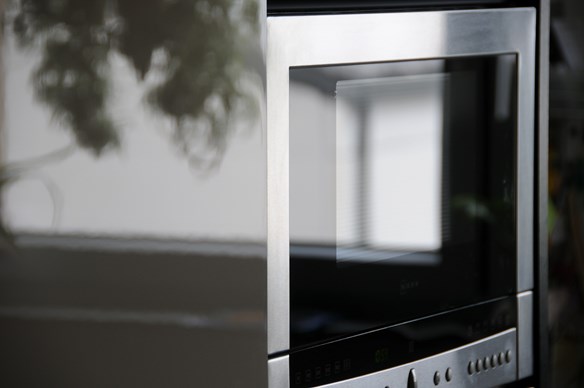We tend to think of microwaves as throwaway items (they should always be disposed of properly, of course) because they’re relatively cheap and the cost to repair them may exceed the price of a replacement. However, the issue is not quite so clear cut. Integrated microwaves, which are becoming increasingly common in modern homes, can cost hundreds of dollars to replace, and finding an exact match for your kitchen is not always easy. That’s why microwave repairs are on the rise.
How to decide when a microwave is worth fixing
These days, you can buy a relatively good standalone microwave for around $100, with high-powered options costing another $100 or $200 more. If your microwave breaks down, then unless it is still covered by the manufacturer’s warranty, the cost of the microwave will be a big factor in whether you get it replaced or repaired.
If you have a cheap standalone microwave, then for all but the simplest repair jobs, you’re probably better off shopping for a replacement, particularly if the microwave is already five or more years old. However, if your microwave is a more expensive model or is integrated into your kitchen, it’s well worth requesting a quote to see how much a repair would be.
Replacing an integrated microwave could cost you upwards of $300, particularly when you factor in the cost of installation. If you have a high-end model from a brand such as Viking or Thermador, then it’s likely to cost a lot more. According to Angie’s List, the average cost to fix a microwave is $133, so you could stand to make a big saving by getting a repair. That’s particularly the case if you’re covered by a home warranty, with average service call fees ranging from just $60-$75.
How much do common microwave repairs cost?
Another important factor when deciding whether to fix a microwave is what the fault is. If a microwave suddenly stops while in use, then the fault could well be a blown fuse, which is easy and cheap to repair. Another common issue that’s relatively cheap to repair is a faulty touchpad, which can cost anywhere between $20 and $50 for parts and installation. Replacement microwave doors and even some fan repairs can also be very cost-effective.
At the other end of the scale are issues with the magnetron, which creates the heat in most microwaves. If the microwave is not heating, there’s a burning smell or a snapping sound, then that could well be the cause of the fault. The magnetron will cost around $150 to replace, so depending on the cost and age of your microwave, it may be worth considering a replacement.
A transformer is another expensive issue to fix. A faulty transformer, typically characterized by a microwave that’s either completely dead or that runs briefly and then stops, is likely to carry a fairly hefty repair bill of around $150.
When microwave repair is worth it
So, going back to the original question… Is it worth fixing a microwave oven? In certain circumstances, yes.
If your microwave is a high-end brand or has features, such as a convection setting, that make it more expensive, then it’s usually worth fixing. Similarly, if your microwave is relatively new and is built into your kitchen, a repair is likely to be more cost-effective than buying a new microwave and paying for it to be installed.
At Go Assist, we have experience repairing all types of microwaves, from high-end models to integrated appliances in hard-to-reach areas. Find out more about our appliance repair service and book an appointment today.
